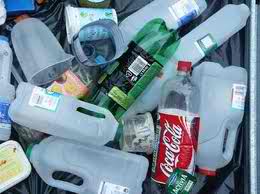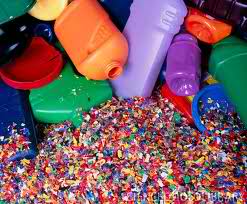Polyurethane raw material is one of the most widely used plastics in the world.
In 2007 its consumption was above 12 million tons, with an average annual growth rate in its use of about 5 percent.
Since the 1950s, one billion tons of plastic are thought to have been discarded and the waste may persist for hundreds or even thousands of years.
As part of Yale’s Rainforest Expedition and Laboratory educational program, the researchers scoured the Ecuadorian rainforest for plants and cultured the micro-organisms within their tissue.
According to the journal Applied and Environmental Microbiology, they say, ‘Endophytes were isolated from plant stems collected in the Ecuadorian rainforest.
Endophytes are micro-organisms that live within the inner tissues of plants, but do not cause any noticeable disease symptoms in their hosts.
They often play a key role in the decomposition of the plants after death, but never before have they been tested for their ability to degrade synthetic materials.
The Yale researchers who are authors of the study hold out hope that further exploration of properties of endophytes could reveal more miracle metabolizers that could potentially be used to degrade other kinds of plastics.
‘Each of the more than 300,000 land plant species on Earth potentially hosts multiple endophyte species,’ according to the researchers.
‘Endophytes reach their greatest diversity in tropical forests. Individual trees can harbor hundreds of endophytic species, some of which are known but many of which are new to science.’
With the findings, U.S. researchers now believe that a fungus could be used to break down plastic, and so rescue the world from one of its biggest man-made environmental threats.
The world’s populace patronizing to plastic packaging and products, threatens to choke many of the Eco-systems that life relies on for survival.
The plastic eating fungi’s discovery is a breakthrough that could give us hope and save the world from its biggest man-made ecological threat, the deliberate proliferation of plastic wastes in our environment.

